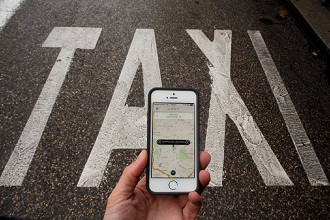Crackdown on Exploitation of Self-Employed Workers in the Gig Economy
Crackdown on Exploitation of Self-Employed Workers in the Gig Economy

A review commissioned by Theresa May will crack down on firms that use self-employed workers to avoid paying sickness, pension and maternity benefits.
The review by Matthew Taylor, a former head of the Downing Street policy unit under Tony Blair and now head of the Royal Society of Arts, is expected to conclude later in the year that a growing number of firms are taking on supposedly self-employed workers for jobs previously carried out by salaried staff. Government sources have said the Prime Minister would back the review’s recommendations, which are expected to include much stricter rules around what constitutes genuine self-employment.
The review is understood to have found evidence of firms asking prospective staff to incorporate themselves as sole traders rather than being taken on the payroll. Such an arrangement allows companies to avoid paying statutory sick pay and maternity benefits or to contribute to their workers’ pensions under auto-enrolment.
Control is a core issue
Matthew Taylor said that focus in the report would be the issue of control. He said: “If you are subject to control – if as an individual in the relationship with the person who’s hiring you, they control your work, they control the basis upon which you work, they control the content of your work – that looks like the kind of relationship where the quid pro quo should be that you respect that person’s employment rights and entitlements.”
Mr Taylor said he believed that more industries would soon face workers who were no longer prepared to accept ever harsher conditions.
“In the 21st century, a time when we have so much autonomy and choice and we expect control in our lives, we don’t accept the idea of kind of wage slavery, the idea of people at work having no choice, no voice, no capacity to influence what’s going on around them and I think people feel that doesn’t really fit with the times,” he said.
A new deal in the workplace
He added: ‘We need a new deal for the self-employed, which is we need a fairer tax system but we also need stronger rights and we need to support self-employed people in providing better for themselves.”
“There is a growing recognition in government that there is an imbalance in the way the economy works. This needs to be addressed. It is a new era in workplace relations,” said a government source.
The Chancellor has already attempted to implement one proposal in the Taylor review – the ill-fated rise in national insurance contributions (NICs) for the self-employed. Mr Taylor said that he regretted the decision to abandon the increase in NICs.
CBI is guarded in its response to review
A spokesman for the Federation of Small Businesses welcomed the Taylor Review: “Self-employment should be more clearly defined, so that there is no ambiguity for a self-employed person, employee, employer, or contractor.”
A spokesman for the Confederation of British Industry offered a more guarded response: “A flexible range of contract options is a key driver of strength in our economy. The CBI is participating in the Taylor Review process with the aim of ensuring employment law and practice is fit for the future, fair and flexible.”
Gig economy firms ‘have cake and eat it’
A landmark study of workers in the gig economy suggests firms are “having their cake and eating it” by treating workers like staff while avoiding the tax and regulations that typically relate to employing people on full-time contracts.
The Chartered Institute of Personnel and Development survey found that although workers were classified as self-employed, many were concerned about the control which the businesses they worked for exerted over them.
“This is supported by the data, as just four in 10 – or 38% – gig economy workers say that they feel like their own boss, which raises the question of whether some are entitled to more employment rights,” the report said.
It also found that 14% of respondents said they did gig work because they could not find alternative employment. The most common reason for taking on gig work was to boost income, which accounted for 32% of responses.
Contact our employment lawyers for expert advice
Our Employment team provides advice on the employment aspects of all major business decisions. For expert advice please contact a member of the team on 03456 381381 or email enquiries@ibblaw.co.uk.
